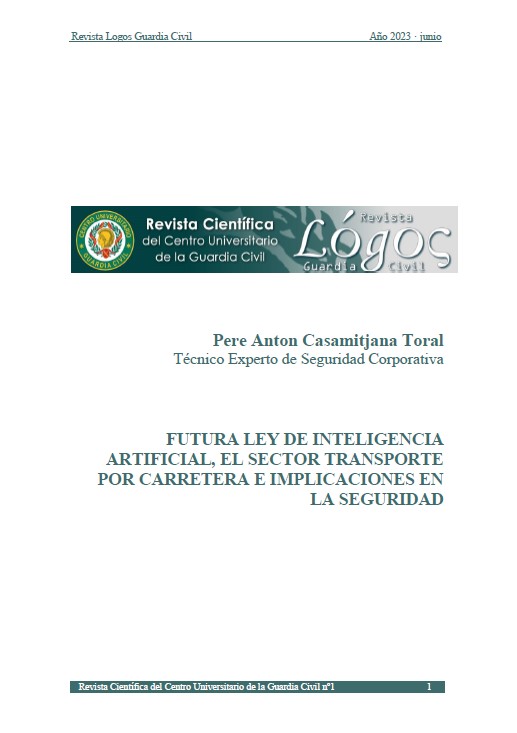FUTURE ARTIFICIAL INTELLIGENCE ACT, THE ROAD TRANSPORT INDUSTRY AND SAFETY IMPLICATIONS
Keywords:
biometric identification, resilience, traffic monitoring and control, road safety, V2V – V2I, smart infrastructure, autonomous or connected vehicle, Artificial IntelligenceAbstract
Artificial Intelligence is set to be a disruptive element that could even surpass human capabilities. In this light, the European institutions want to anticipate full deployment and are finalising the future Artificial Intelligence Act, which will guarantee security, respect for fundamental rights and EU values. This act, in the dimension of the road transport industry, applies to three vectors: the autonomous or connected vehicle, intelligent infrastructure and V2V (vehicle-to-vehicle communication) or V2I (vehicle-to-infrastructure communication). However, this article breaks down and details the security implications of the application and integration of AI (Artificial Intelligence) systems in the industry, detailing both the legal and industry context.
Downloads

Downloads
Published
How to Cite
Issue
Section
License
Copyright (c) 2023 Pere Anton Casamitjana Toral

This work is licensed under a Creative Commons Attribution-NonCommercial-NoDerivatives 4.0 International License.
-
Attribution — You must give appropriate credit, provide a link to the license, and indicate if changes were made. You may do so in any reasonable manner, but not in any way that suggests the licensor endorses you or your use.
-
NonCommercial — You may not use the material for commercial purposes.
-
NoDerivatives — If you remix, transform, or build upon the material, you may not distribute the modified material.
- No additional restrictions — You may not apply legal terms or technological measures that legally restrict others from doing anything the license permits.



